10 Best Medicines For Hair Growth With Good Results (2025)
Treatment options that strengthen your hair from roots and prevent hairfall
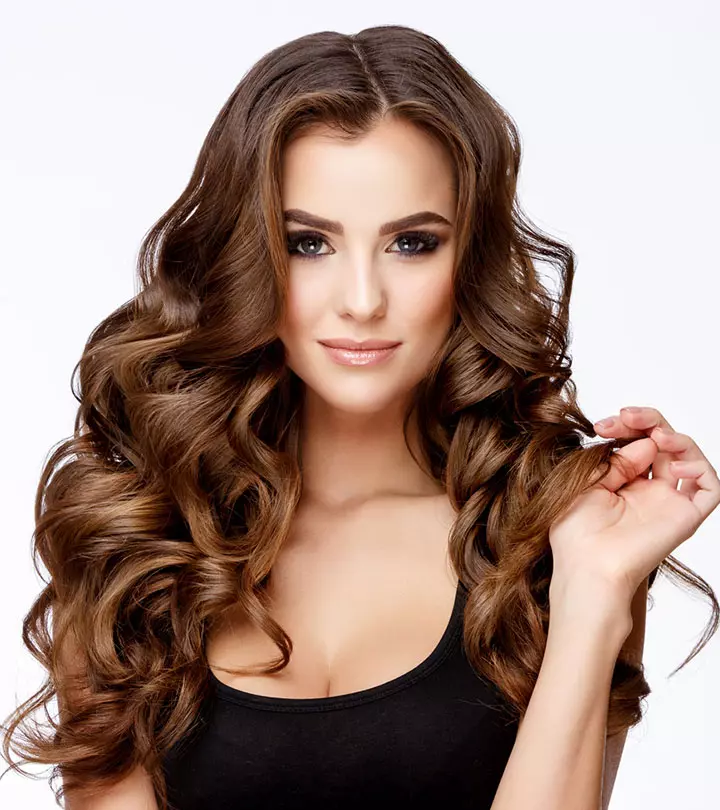
Image: ShutterStock
You may be surprised to know that there are some medicines for hair growth out there. Hair growth takes time. Anxiety, pollution, and other internal and external factors can all have an impact on hair growth. Luckily, there are a variety of scalp treatments available, including medicines, to stimulate hair growth and minimize hair loss. These medications are known to strengthen the hair as well as reduce hair loss and encourage hair growth. We will look at various natural remedies, pharmaceutical solutions, and the best medicines for hair growth in this article. Keep reading to learn more!
In This Article
Best Medicines For Hair Growth
The top 10 medicines for growing strong and healthy hair are listed below:
1. Cortisone
Cortisone is a steroidi A biologically active organic compound that fights inflammation and autoimmune diseases causing hair fall. . This medicine for hair regrowth is potent and has shown effective results when taken in the form of injections directly on the scalp (1).
Note: Oral steroids don’t promote hair growth. Instead, they may cause complications, and topical application may cause irritation and contact dermatitisi A condition in which rashes on the skin appear due to a reaction with things like soap, jewelry, cosmetics, and perfumes. . Hence, injections are used to treat alopecia areatai A condition in which the immune system attacks hair follicles resulting in sudden hair loss and bald patches. .
2. Minoxidil
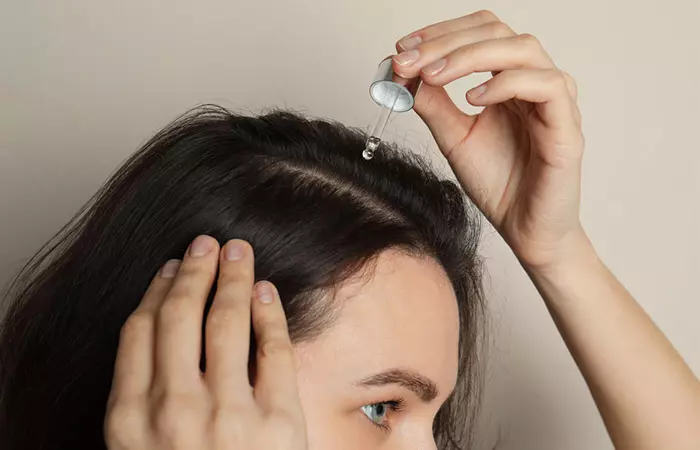
Minoxidil is a popular medicine for promoting hair growth (2), (3), (4). The commercial name of this medication is Regaine, and it contains 5% minoxidil. However, this medicine takes months to show positive results when used diligently. Minoxidil is one of the best hair regrowth formulas available on the market and you can find it incorporated in various shampoos, conditioners, serums, tonics, sprays, and foams. It is important to note that this medicine works temporarily, and hair fall reoccurs whenever the use of the medicine is stopped. Also, prolonged use of minoxidil may cause contact dermatitis, itching, and rashes.
Ksuan, a blogger, shared about her hair fall problem and she took biotin tablets daily and applied a 3% minoxidil solution to her scalp twice a day to combat this. Although her hair fall did not stop completely in a few weeks, she wrote, “There appears to be significant hair regrowth on my scalp. My hair is also becoming thicker, to my surprise (i).”
 Quick Tip
Quick Tip3. Finasteride
Finasteride is another medicine that works on the lines of minoxidil and is more effective in cases where men get bald (5), (6). It is one of the key drugs that promote hair growth in the crown region and even helps in preventing a receding hairline.
A study was conducted on 458 participants for 24 weeks to determine the efficacy and safety of topical finasteride spray solution for male androgenetic alopecia. The study found that topical application of finasteride resulted in more hair growth than the placebo (20.2 vs. 6.7 hairs).
Note: Finasteride should be taken under a doctor’s supervision after baseline investigations. Also, contraception is necessary while on treatment.
4. Rosemary Essential Oil
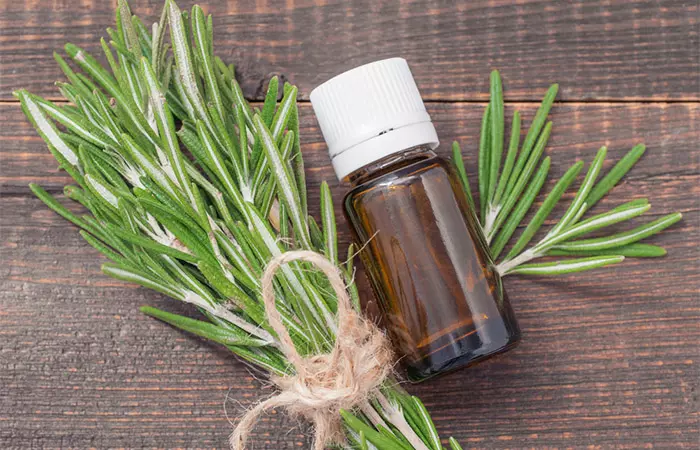
Rosemary extracts and essential oil have been shown to aid hair growth in multiple studies (7), (8), (9). Apply rosemary essential oil to the scalp to enhance the blood flow in the scalp, which eventually promotes hair growth. You can also look for DIY lotions, creams, and hair masks that incorporate this essential oil in their formulation.
5. Kalium Carbonicum
Kalium Carbonicum is a homeopathy medicine that is generally prescribed for preventing hair thinning and drying of hair.
6. Silicea
Another effective homeopathic medicine for promoting hair growth is Silicea (10). It is usually prescribed for baldness and brittle hair and nails. It can also help treat dandruff.
Worrying about the slow growth of your hair or maybe excessive shedding? These can help!
7. Nioxin Vitamins
The Nioxin Recharging Complex Hair Growth Supplement is a blend of multiple nutrients, including vitamin A, biotin, iron, copper, silicon, and zinc that provide nourishment to hair and support healthy hair growth. As we know, a diet deficient in key vitamins and minerals can lead to hair loss. Hence, it is crucial and advisable to take vitamins to control hair loss. Nioxin supplements help provide your body with vital nutrients that aid hair growth.
8. Diphenylcyclopropenone (DPCP)
This medicine is topically administered to the scalp and has shown to promote hair growth (11), (12). It is available in liquid form and has to be applied once a week to strengthen the hair roots and should be used strictly under a doctor’s supervision.
9. Licorice Extracts
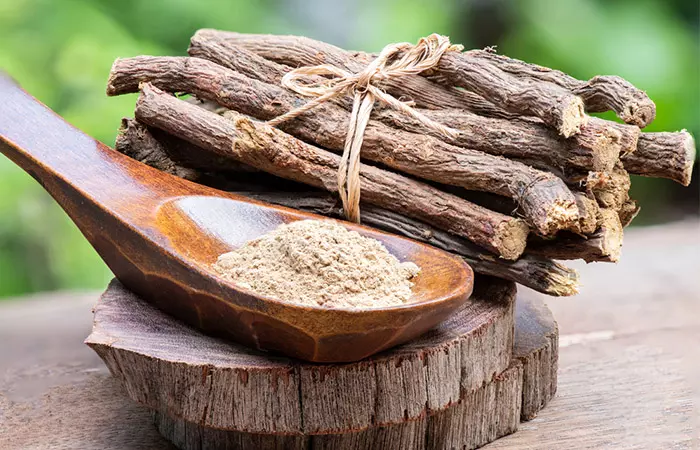
This Ayurvedic medicine showed promising results in enhancing hair growth if used diligently (13), (14). Though available in the form of capsules, it can be applied topically as well. It is reasonably priced and excellent for growing good-quality hair.
 Quick Tip
Quick Tip10. Sage Tea
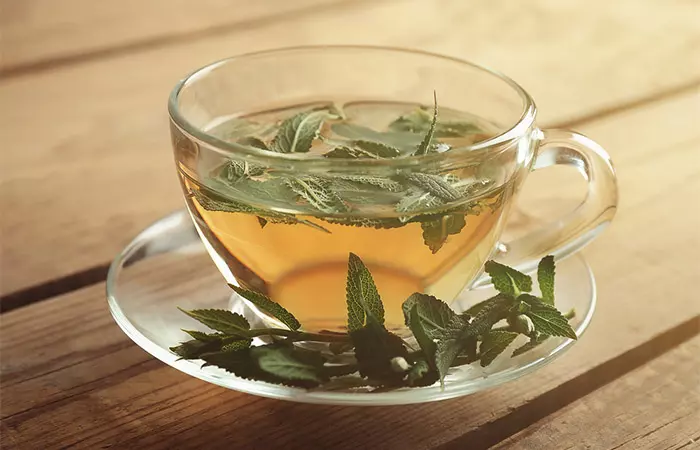
A combination of herbs that included sage was found to enhance hair density and growth (15). Sage can also help reduce dandruff (16). This tea is readily available, and you can wash your scalp with it for better results.
Note: Sage tea may cause scalp irritation, so do a patch test before using it on your hair.
Key Takeaways
- Rosemary essential oil can aid in increasing blood flow in the scalp, thereby promoting hair growth.
- Sage tea is effective in removing dandruff from the scalp and stimulating hair growth.
- Licorice extract is a common Ayurvedic medicine for hair growth and is a cost-effective option as well.
- Minoxidil is a known medicine for supporting hair growth and curbing hair loss.
Infographic: Useful Tips For Taking Care Of Your Hair
Consuming medicines for hair growth may not always give good results. You need to take extra care of your hair and follow a proper hair care routine to improve your hair health and prevent breakage. The products you use on your hair, the way you use them, the water you use to wash it, and the number of times you wash it in a week can make a big change in your hair health.
Check out the infographic below to learn more useful tips for taking care of your tresses.
Some thing wrong with infographic shortcode. please verify shortcode syntax
Hair fall is a common issue faced by many. There are several ways to solve this issue and boost hair regrowth. The medicines discussed in the article will help you improve your hair health and stimulate hair growth. However, popping pills and using hair oils and gels alone cannot offer good results. Along with having the best medicine for hair fall and regrowth, you may also have to follow a proper hair care routine and consume a healthy diet for the best results. Always consult a doctor before you start taking these medicines. Do not self-medicate as it may cause adverse effects.
Frequently Asked Questions
What lifestyle changes can help with hair growth?
Simple changes like eating a nutrient-rich diet, reducing stress, and avoiding harsh styling or chemical treatments can support healthier hair and encourage growth.In addition healthy exercising and proper hydration also support good hair health.
Is a vitamin E capsule good for hair?
Yes. A research study showed that tocotrienol, a compound of the vitamin E family, can help boost hair growth by the end of 8 months of supplementation. When compared to people who don’t take this supplement, people taking vitamin E capsules of about 100 mg per day can show 34.5% increase in hair growth (17).
Is aloe vera good for hair?
Yes. Studies have found that aloe vera helps reduce scalp itchiness, dandruff, and hair fall. It may boost hair strength as well (18).
Can onion juice regrow hair?
Yes. Studies show that crude onion juice application for about 6 weeks may help regrow hair and boost hair growth, especially for men (19).
Does rice water grow hair?
Yes. Rice water contains beneficial compounds that help boost hair growth, reduce inflammation, and prevent hair fall (20).
Illustration: Best Medicines For Hair Growth With Good Results
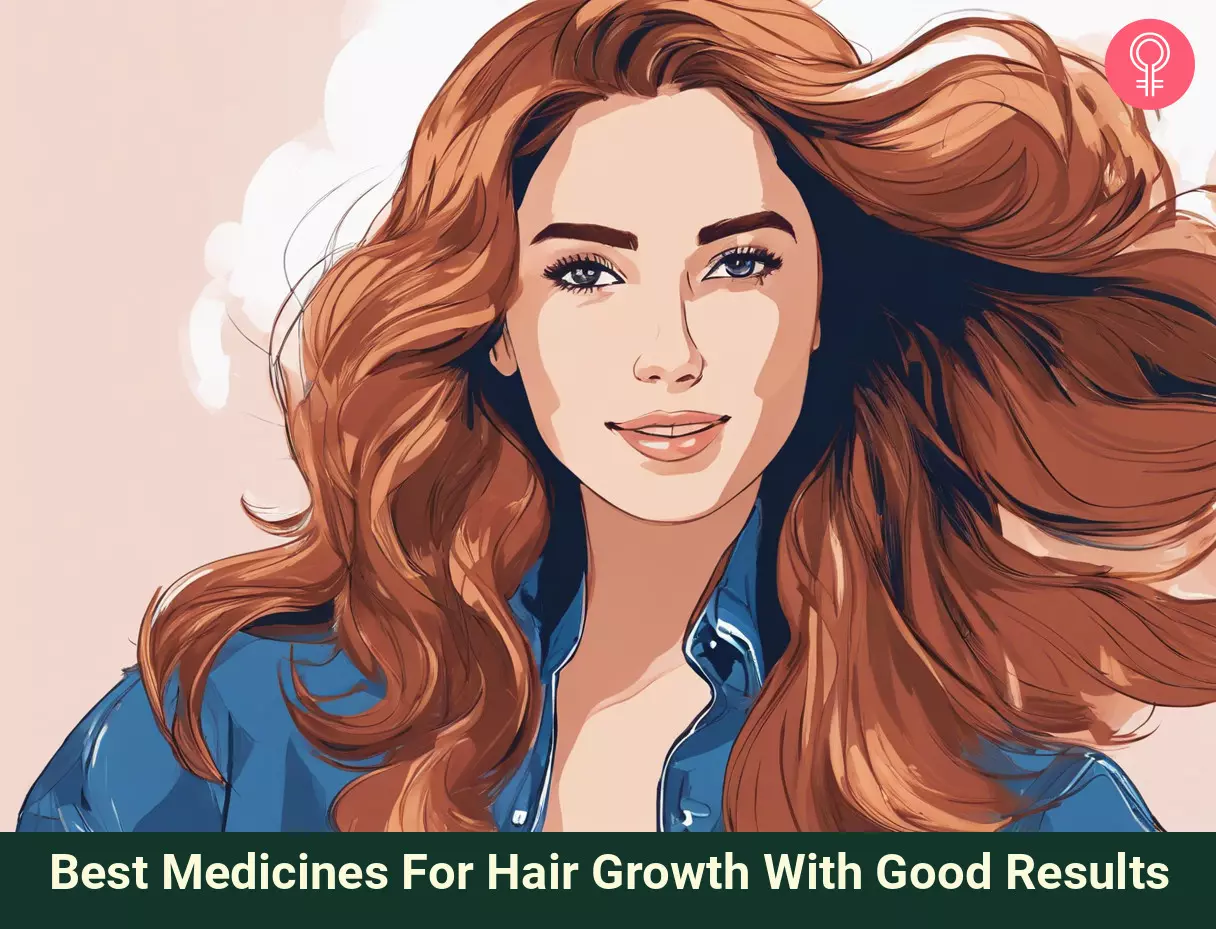
Image: Stable Diffusion/StyleCraze Design Team
Embarking on a quest for luscious locks? Watch this video and discover the ultimate hair loss medication that reignites your mane’s glory! Dive into the world of proven treatments, unlocking the secret to vibrant, voluminous hair.
Personal Experience: Source
StyleCraze's articles are interwoven with authentic personal narratives that provide depth and resonance to our content. Below are the sources of the personal accounts referenced in this article.
i. The hair chronicles: biotin and minoxidil,https://belledemoiselle.wordpress.com/2013/09/02/the-hair-chronicles-biotin-and-minoxidil/
References
Articles on StyleCraze are backed by verified information from peer-reviewed and academic research papers, reputed organizations, research institutions, and medical associations to ensure accuracy and relevance. Read our editorial policy to learn more.
- Alsantali, Adel. “Alopecia areata: a new treatment plan.” Clinical, cosmetic and investigational dermatology vol. 4 (2011): 107-15.
https://www.ncbi.nlm.nih.gov/pmc/articles/PMC3149478/ - Suchonwanit, Poonkiat et al. “Minoxidil and its use in hair disorders: a review.” Drug design, development and therapy vol. 13 2777-2786.
https://www.ncbi.nlm.nih.gov/pmc/articles/PMC6691938/ - Rumsfield, J A et al. “Topical minoxidil therapy for hair regrowth.” Clinical pharmacy vol. 6,5 (1987): 386-92.
https://pubmed.ncbi.nlm.nih.gov/3311578/ - Rossi, Alfredo, et al. “Minoxidil use in dermatology, side effects and recent patents.” Recent patents on inflammation & allergy drug discovery 6.2 (2012): 130-136.
https://www.researchgate.net/publication/221695328_Minoxidil_Use_in_Dermatology_Side_Effects_and_Recent_Patents - McClellan, K J, and A Markham. “Finasteride: a review of its use in male pattern hair loss.” Drugs vol. 57,1 (1999): 111-26.
https://pubmed.ncbi.nlm.nih.gov/9951956/ - Van Neste, D et al. “Finasteride increases anagen hair in men with androgenetic alopecia.” The British journal of dermatology vol. 143,4 (2000): 804-10.
https://pubmed.ncbi.nlm.nih.gov/11069460/ - Murata, Kazuya et al. “Promotion of hair growth by Rosmarinus officinalis leaf extract.” Phytotherapy research : PTR vol. 27,2 (2013): 212-7.
https://pubmed.ncbi.nlm.nih.gov/22517595/ - Panahi, Yunes et al. “Rosemary oil vs minoxidil 2% for the treatment of androgenetic alopecia: a randomized comparative trial.” Skinmed vol. 13,1 (2015): 15-21.
https://pubmed.ncbi.nlm.nih.gov/25842469/ - Hay, Isabelle C., Margaret Jamieson, and Anthony D. Ormerod. “Randomized trial of aromatherapy: successful treatment for alopecia areata.” Archives of dermatology 134.11 (1998): 1349-1352.
https://jamanetwork.com/journals/jamadermatology/fullarticle/189618 - “SILICEA- silicon dioxide tablet” DailyMed, National Institutes of Health.
https://dailymed.nlm.nih.gov/dailymed/drugInfo.cfm?setid=cc32d340-6a13-4872-8efc-8d4c3e87433a - Chiang, Katherine S et al. “Clinical Efficacy of Diphenylcyclopropenone in Alopecia Areata: Retrospective Data Analysis of 50 Patients.” The journal of investigative dermatology. Symposium proceedings vol. 17,2 (2015): 50-5.
https://pubmed.ncbi.nlm.nih.gov/26551948/ - Nowicka, Danuta et al. “Efficacy of diphenylcyclopropenone in alopecia areata: a comparison of two treatment regimens.” Postepy dermatologii i alergologii vol. 35,6 (2018): 577-581.
https://pubmed.ncbi.nlm.nih.gov/30618524/ - Saumendu, Deb Roy, et al. “Hair growth stimulating effect and phytochemical evaluation of hydro-alcoholic extract of Glycyrrhiza glabra.” Global Journal of Research on Medicinal Plants & Indigenous Medicine 3.2 (2014): 40.
https://www.researchgate.net/publication/260281460_HAIR_GROWTH_STIMULATING_EFFECT_AND_PHYTOCHEMICAL_EVALUATION_OF_HYDRO-ALCOHOLIC_EXTRACT_OF_GLYCYRRHIZA_GLABRA - Utami, Sheila Meitania, Joshita Djajadisastra, and Fadlina Chany Saputri. “Using hair growth activity, physical stability, and safety tests to study hair tonics containing ethanol extract of licorice (Glycyrrhiza glabra Linn.).” International Journal of Applied Pharmaceutics 9 (2017): 44-48.
https://www.researchgate.net/publication/320802200_Using_hair_growth_activity_physical_stability_and_safety_tests_to_study_hair_tonics_containing_ethanol_extract_of_licorice_Glycyrrhiza_glabra_Linn - Rastegar, Hosein et al. “Herbal Extracts Induce Dermal Papilla Cell Proliferation of Human Hair Follicles.” Annals of dermatology vol. 27,6 (2015): 667-75.
https://www.ncbi.nlm.nih.gov/pmc/articles/PMC4695417/ - Gupta, Amit, et al. “Indian medicinal plants used in hair care cosmetics: a short review.” Pharmacognosy Journal 2.10 (2010): 361-364.
https://www.researchgate.net/publication/235989845_Indian_Medicinal_Plants_Used_in_Hair_Care_Cosmetics_A_Short_Review - Effects of Tocotrienol Supplementation on Hair Growth in Human Volunteers
https://www.ncbi.nlm.nih.gov/pmc/articles/PMC3819075/ - A Close Look at Aloe Vera Barbadensis and It’s Effect on Hair Health
https://www.researchgate.net/publication/342588964_A_Close_Look_at_Aloe_Vera_Barbadensis_and_It’s_Effect_on_Hair_Health - Onion juice (Allium cepa L.), a new topical treatment for alopecia areata
https://pubmed.ncbi.nlm.nih.gov/12126069/ - Rice bran mineral extract increases the expression of anagen-related molecules in human dermal papilla through wnt/catenin pathway
https://www.ncbi.nlm.nih.gov/pmc/articles/PMC5727428/
Read full bio of Dr. Madhuri Agarwal
Read full bio of Anjali Sayee
Read full bio of Ramona Sinha
Read full bio of Swathi E






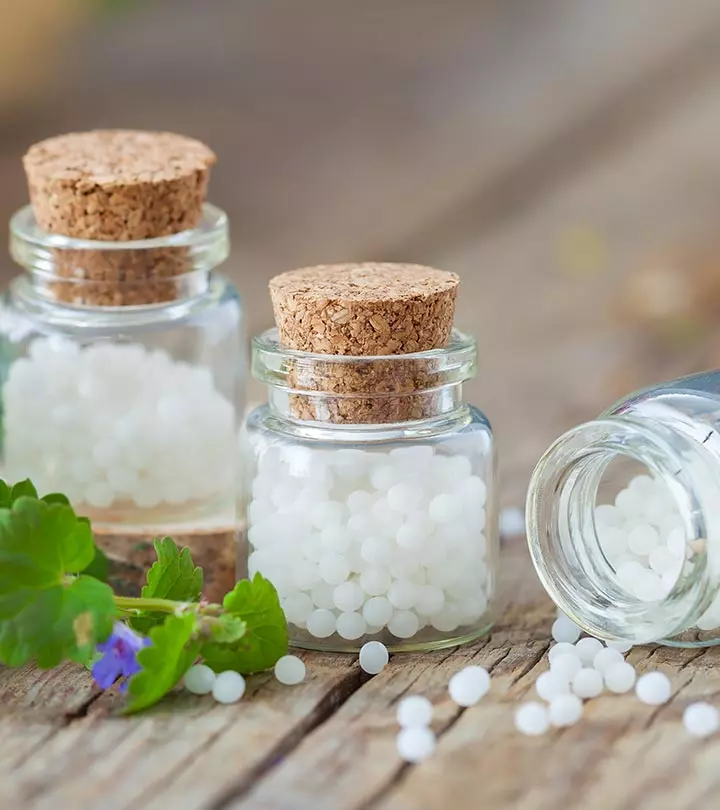
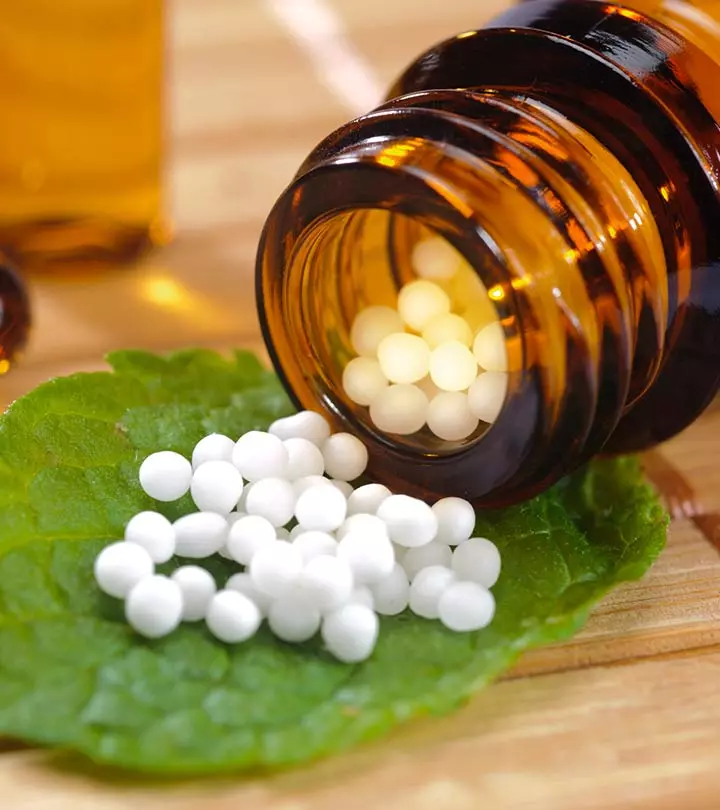
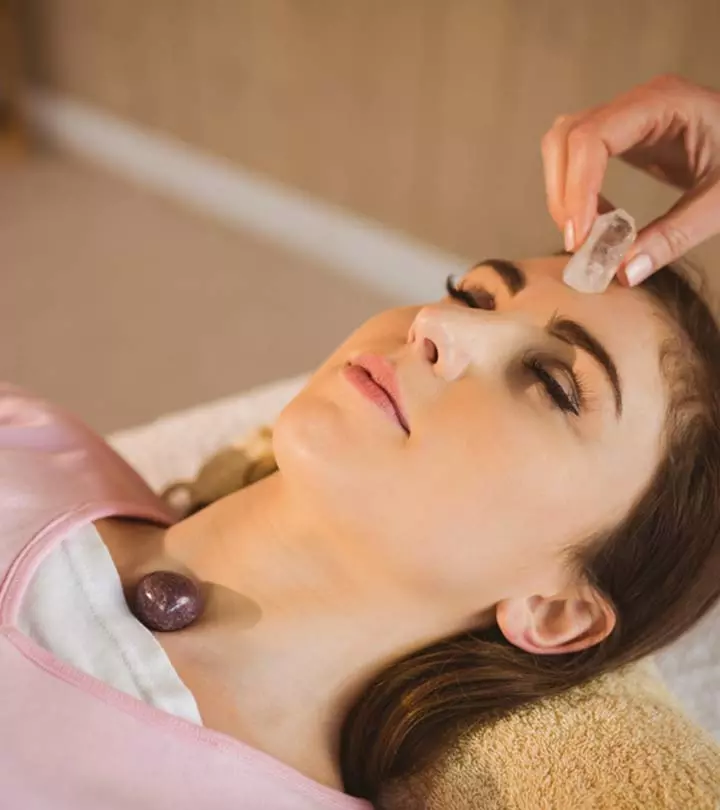
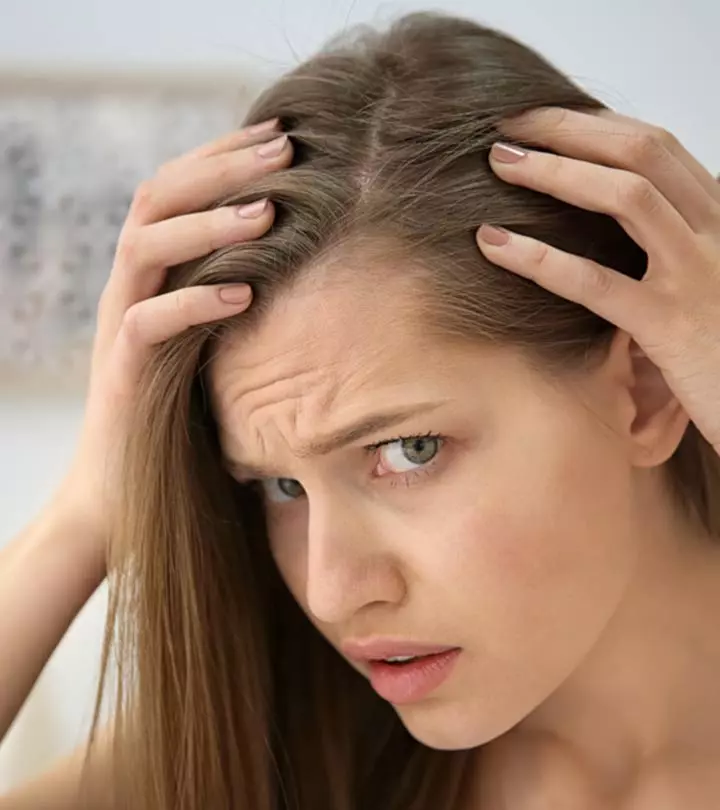
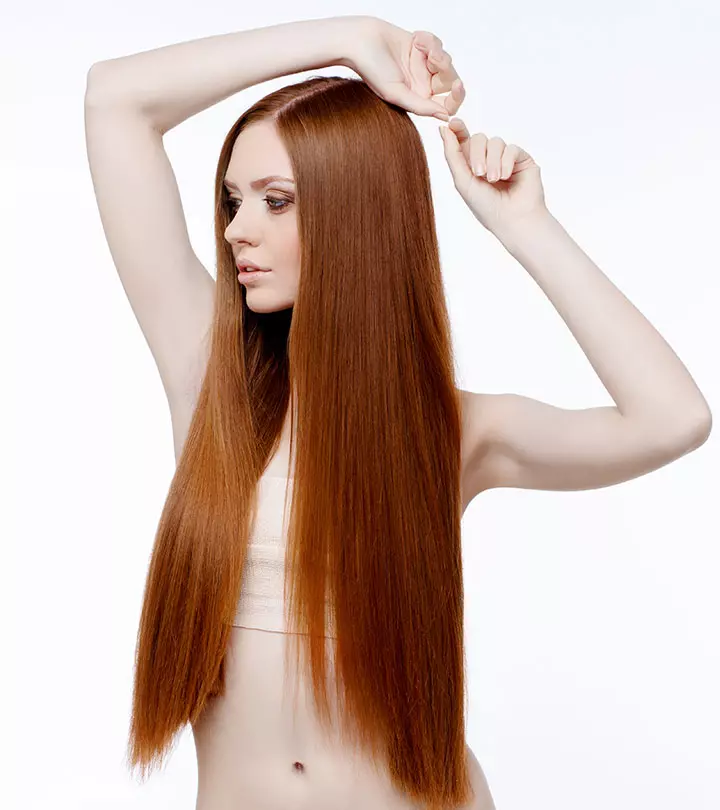

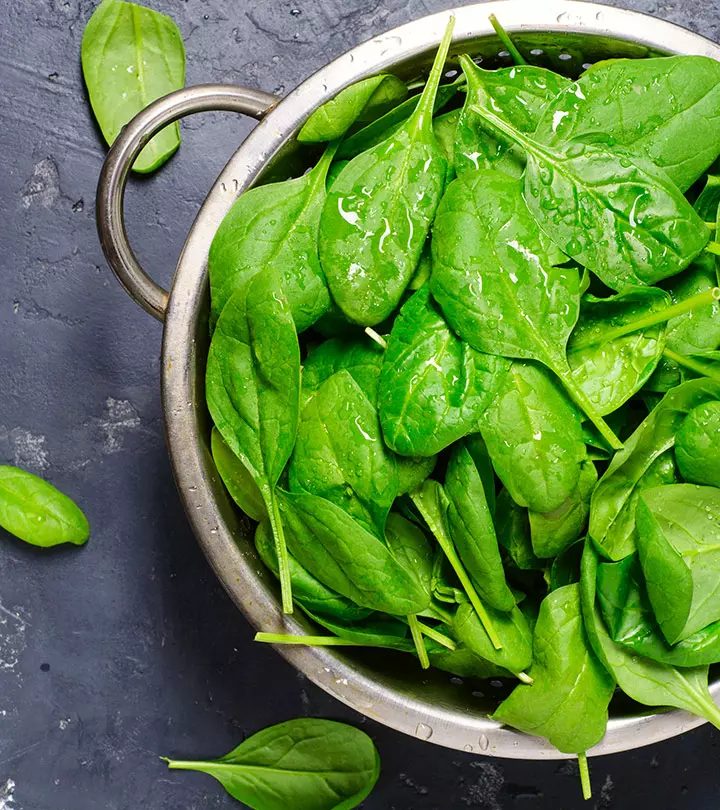


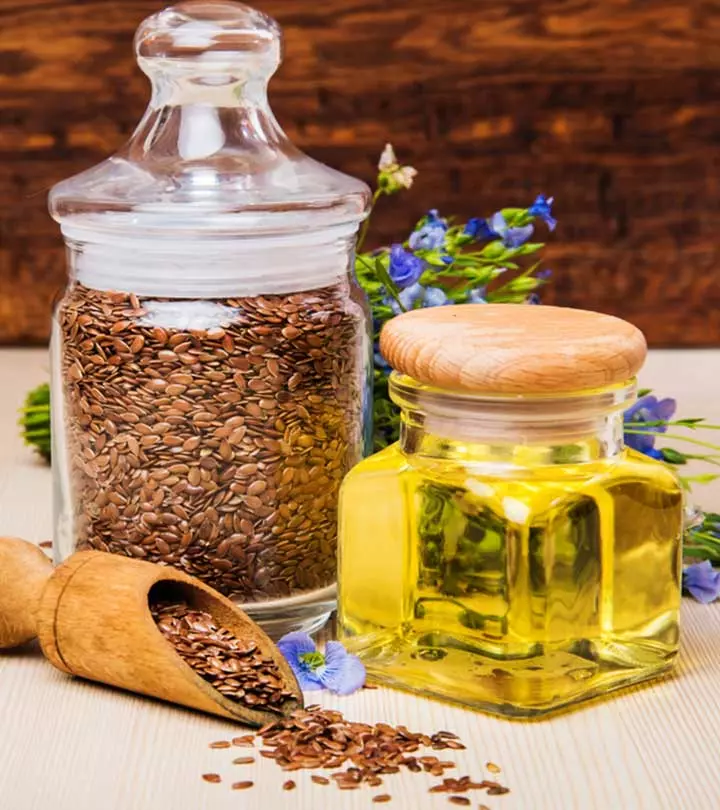
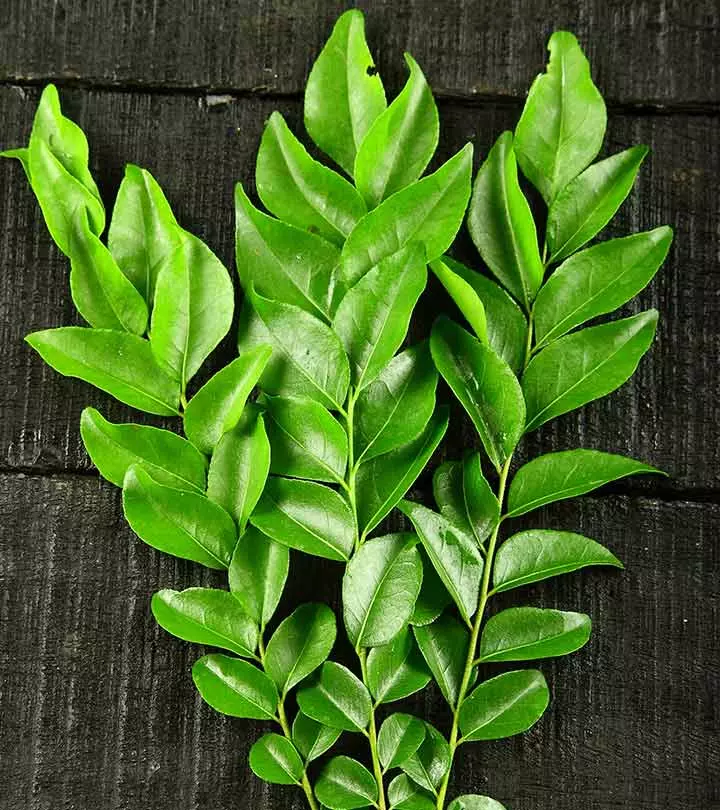
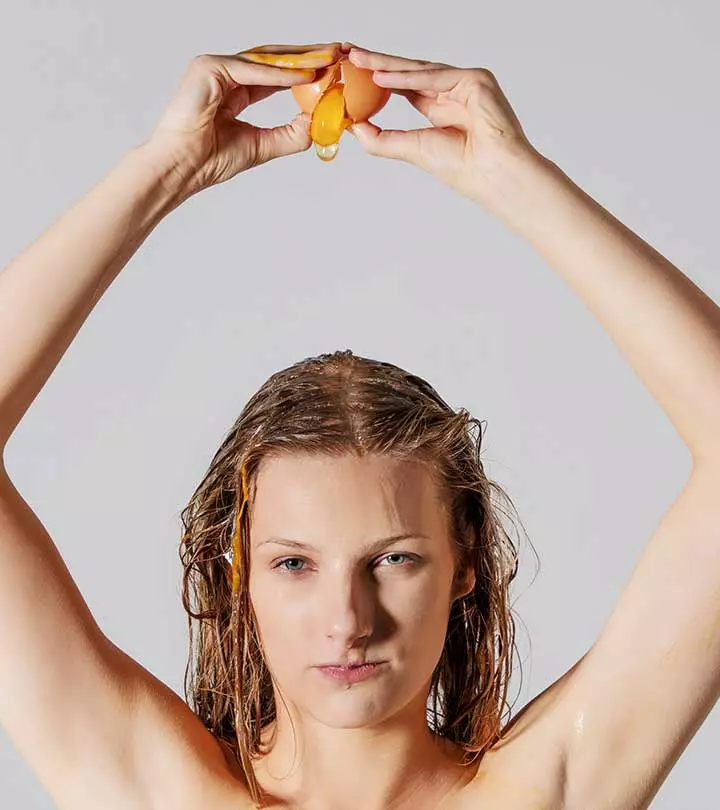
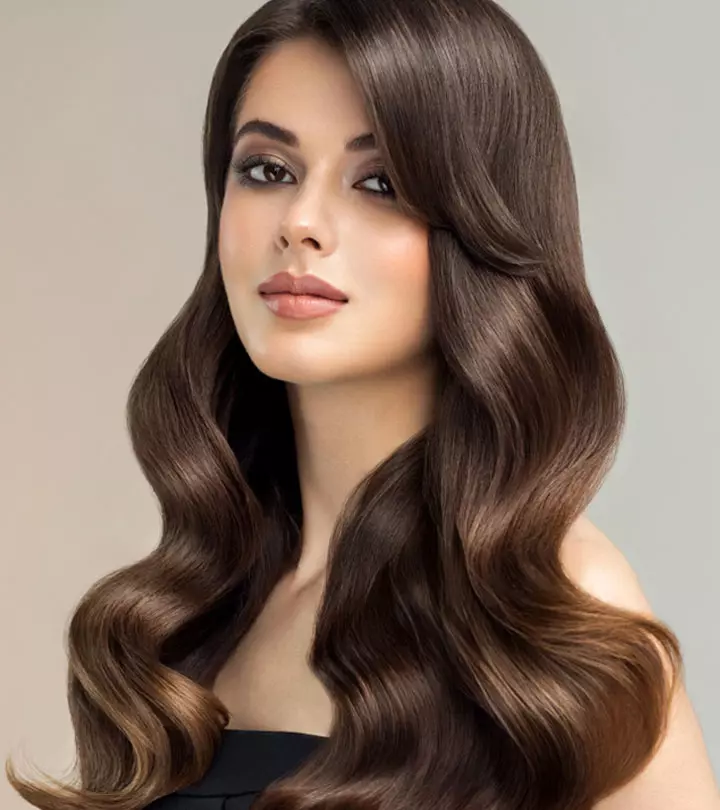
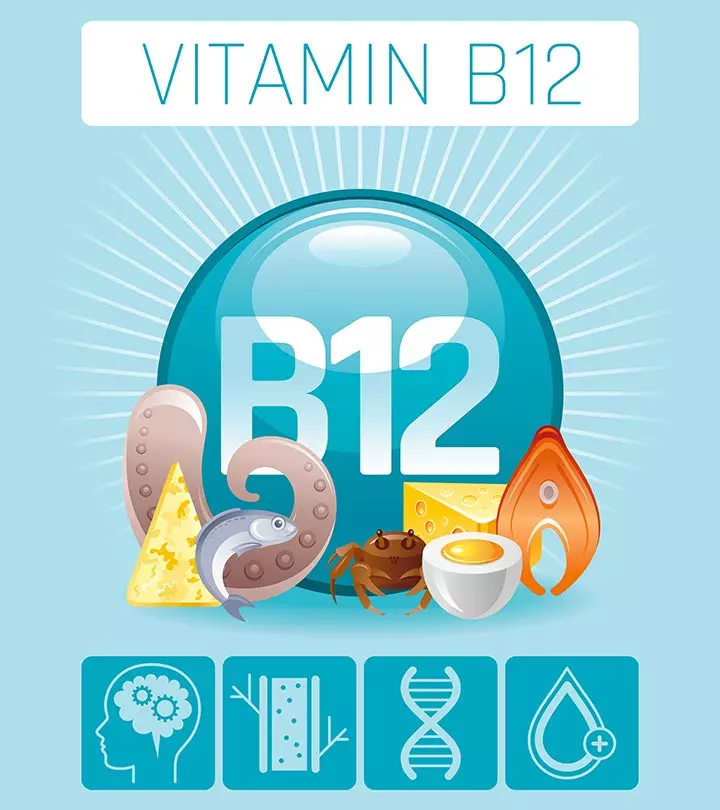
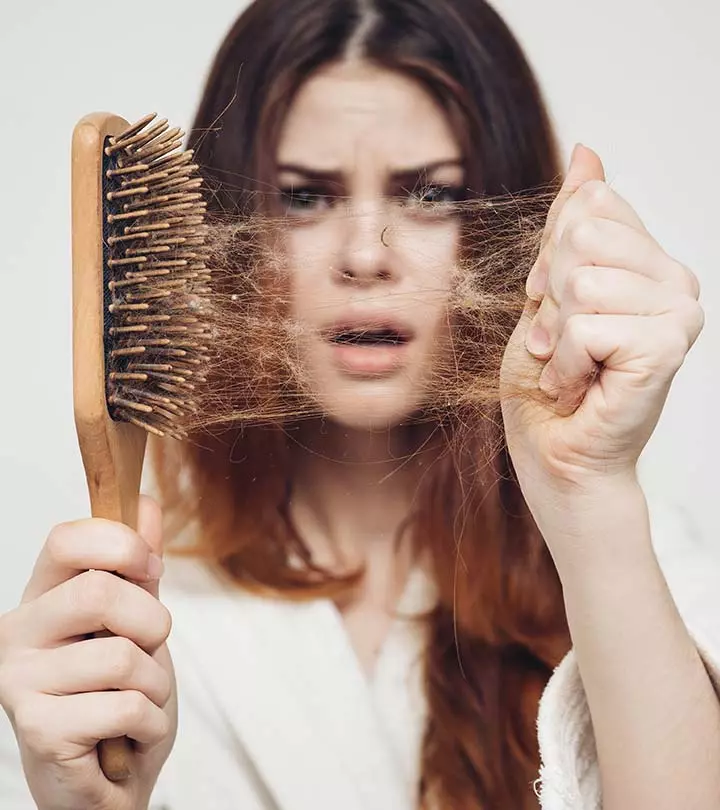

Community Experiences
Join the conversation and become a part of our empowering community! Share your stories, experiences, and insights to connect with other beauty, lifestyle, and health enthusiasts.